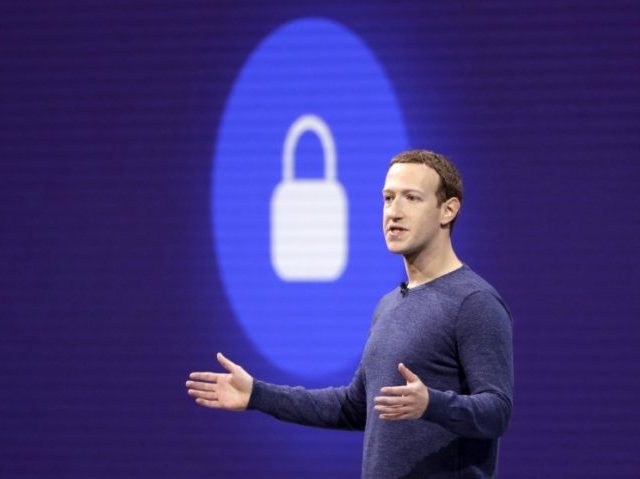Facebook CEO Mark Zuckerberg published an op-ed in the Wall Street Journal this week in which he comes to the defense of his scandal-ridden social media platform.
Facebook appears to be in damage control mode in 2019 as it attempts to make up for a tough 2018. Facebook COO Sheryl Sandberg appeared at the DLD conference in Munich recent where she stated that she “understands the deep responsibilities we have,” as the platform attempts to regain their users trust following a full year of user data leak scandals. Now, Facebook CEO Mark Zuckerberg has taken to the Wall Street Journal to defend his firm.
Throughout the article, Zuckerberg discusses Facebook’s business model and specifically their collection of user data:
Recently I’ve heard many questions about our business model, so I want to explain the principles…
Facebook turns 15 next month. When I started Facebook, I wasn’t trying to build a global company. I realized you could find almost anything on the internet—music, books, information—except the thing that matters most: people. So I built a service people could use to connect and learn about each other. Over the years, billions have found this useful, and we’ve built more services that people around the world love and use every day.
Zuckerberg attempts to explain Facebook’s relationship with advertisers and their access to user data; stating that Facebook shares users personal data with advertisers in order to better tailor ads:
People consistently tell us that if they’re going to see ads, they want them to be relevant. That means we need to understand their interests. So based on what pages people like, what they click on, and other signals, we create categories—for example, people who like pages about gardening and live in Spain—and then charge advertisers to show ads to that category. Although advertising to specific groups existed well before the internet, online advertising allows much more precise targeting and therefore more-relevant ads.
The internet also allows far greater transparency and control over what ads you see than TV, radio or print. On Facebook, you have control over what information we use to show you ads, and you can block any advertiser from reaching you. You can find out why you’re seeing an ad and change your preferences to get ads you’re interested in. And you can use our transparency tools to see every different ad an advertiser is showing to anyone else.
Still, some are concerned about the complexity of this model. In an ordinary transaction, you pay a company for a product or service they provide. Here you get our services for free—and we work separately with advertisers to show you relevant ads. This model can feel opaque, and we’re all distrustful of systems we don’t understand.
Finally, Zuckerberg claims that control over personal data should be given to the users of the platform, however, it’s hard for users to do this when the site is leaking user data on a semi-regular basis. Zuckerberg writes:
Ultimately, I believe the most important principles around data are transparency, choice and control. We need to be clear about the ways we’re using information, and people need to have clear choices about how their information is used. We believe regulation that codifies these principles across the internet would be good for everyone.
It’s important to get this right, because there are clear benefits to this business model. Billions of people get a free service to stay connected to those they care about and to express themselves. And small businesses—which create most of the jobs and economic growth around the world—get access to tools that help them thrive. There are more than 90 million small businesses on Facebook, and they make up a large part of our business. Most couldn’t afford to buy TV ads or billboards, but now they have access to tools that only big companies could use before. In a global survey, half the businesses on Facebook say they’ve hired more people since they joined. They’re using our services to create millions of jobs.
For us, technology has always been about putting power in the hands of as many people as possible. If you believe in a world where everyone gets an opportunity to use their voice and an equal chance to be heard, where anyone can start a business from scratch, then it’s important to build technology that serves everyone. That’s the world we’re building for every day, and our business model makes it possible
Read the full article in the Wall Street Journal here.
Lucas Nolan is a reporter for Breitbart News covering issues of free speech and online censorship. Follow him on Twitter @LucasNolan_ or email him at lnolan@breitbart.com

COMMENTS
Please let us know if you're having issues with commenting.